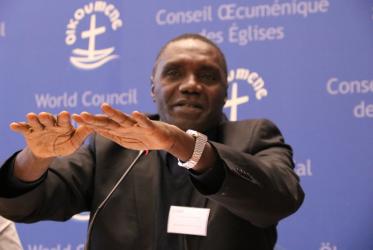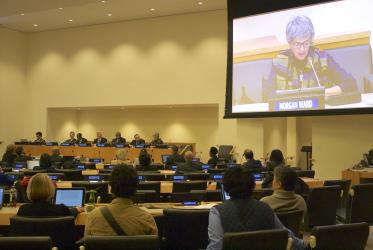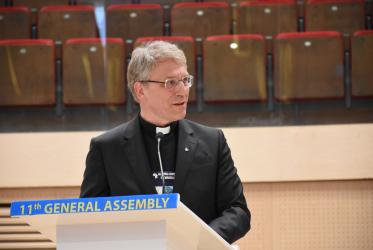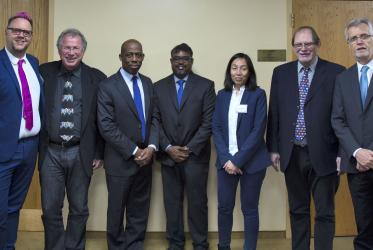Displaying 1 - 20 of 37
25 April 2024
Churches should use their voice on climate change
26 February 2020
WCC climate justice project wins Keeling Curve Prize
11 July 2019
Agreement works toward food security in South Sudan
23 February 2019
Pan African Women of Faith issue fervent Call to Action
20 November 2018
Doing his best without being the best
07 September 2018
New economic architecture focus of New York meeting
22 April 2018
Emily Welty: tide of hope for a world free from nuclear weapons
19 September 2017
G20 summit: call to pray for peace in Hamburg
07 July 2017














